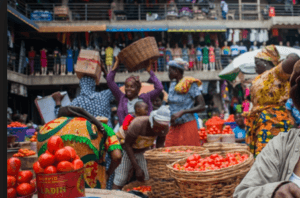Ghanaians to face more hardship amid slow economic growth – Economists
 The economic performance of Ghana for 2021 will pose more economic hardship to the populace as the country experiences slow growth in the coming year, Economists say.
The economic performance of Ghana for 2021 will pose more economic hardship to the populace as the country experiences slow growth in the coming year, Economists say.
Dr Patrick Asuming and Dr Agyapomaa Gyeke-Dako, the Economists, made their assertions in an interview with the Ghana News Agency based on the macroeconomic indicators and performance of the economy as provided in the 2022 budget and economic policy document.
Data provided in the budget showed that the country as of October 2021 had missed the inflation target of 8 per cent, reaching 11 per cent, which was higher than the 10.1 per cent recorded in the same period in 2020.
There was an overall budget deficit (cash) of 7.7 percent of gross domestic product (GDP) against the target of 7.4 per cent of GDP. The budget deficit for same period in 2020 was 8.6 per cent of GDP.
Additionally, the public debt as percentage of GDP stood at 77.8 per cent at the end of September 2021, up from 76.1 per cent at the end of December 2020.
At the end of the first quarter, the country’s debt was GH¢304.6 billion implying a percentage increment of 9.2 percent. This had increased to GH¢332.4 billion after an additional debt of GH¢27.8 billion in April and May 2021.
In terms of economic growth, data released in September 2021 indicated that overall real GDP grew by 3.1 per cent in Q1 and 3.9 per cent in Q2, averaging 3.5 percent in the first half of 2021 against the 0.7 percent growth in same period 2020.
Dr Asuming, Senior Lecturer at the University of Ghana Business School (UGBS), explained that despite the growth recorded in real GDP last year, the high inflation meant that “people’s real income have gone down and the cost of living has gone up.”
“The inflation number being above the target also means that things are more expensive than we thought so the cost of living is high and it’s going to be higher than we initially expected,” he added.
He also explained that even if the growth target were met, the economy was simply not generating enough jobs and this had been evident in recent happenings in the country, including the number of youth that turned up during the security agencies recruitment and the Youth Employment Agency’s jobs career and entrepreneurship fair.
“If you take the political side, things are very hard. If you look at the revenue target for this year versus the coming year, the government is expected to raise more than GH¢30 billion additional cash.
We’ve also seen that they are bringing some new taxes, so generally if you put all the balance together it doesn’t look like living conditions will be dramatically easier in this year or the coming year,” Dr Asuming stated.
He recommended to the government to have a clear plan in the implementation of the digitisation agenda as well as other flagship programmes including the Planting for Food and Jobs (PFJ) and the One District-One Factory (1D1F) initiative.
He said, “some of the things they’ve been doing in the interface have been quiet touching. We need to come back to having a proper plan that we will be able to accomplish.”
For Dr Gyeke-Dako, although there would be some economic growth in the coming year, it was undeniable that the COVID-19 had “taken hold of country economic activities and production is not as vibrant as it was before.
“Obviously, increase in the cost of living came seriously with regard to increases in oil prices. Oil prices have been increasing externally and because of deregulation in oil prices, we see it reflecting in our fuel prices as well. We are also seeing some rise in the prices of goods in the country owing to COVID-19 which has affected our trading partners and our imports”.
“The recovery will be slow because COVID-19 has had a great impact on the economy. If we continue to pursue the measures we have outlined, our economy will expand. This will release us of many of the pressures in the coming year,” she said.
Dr Gyeke-Dako said that “we need to take agriculture seriously, and not just agriculture in its sense but agro-processing. We also need to pursue our industrialization agenda seriously,” adding that when companies did well, more revenue would be generated from both the corporate side and income taxes to fund government projects. This will help reduce deficit and the overall debt burden on us.
She however said, it was important for the government to plug the various holes in the revenue generation system.
“That is why we need to be able to use the Ghana.gov platform to be able to allow people to utilise digitisation processes that we have put in place to be able to rake in the necessary revenue that we want to achieve,” she said.
She said she was optimistic of growth prospects in the coming year, although it will be slow, with reference to the recovery in the economy from 0.4 per cent in 2020 following the COVID-19 to 3.1 per cent in the first quarter of the 2021, which was an indication of prospect.
Source: GNA
